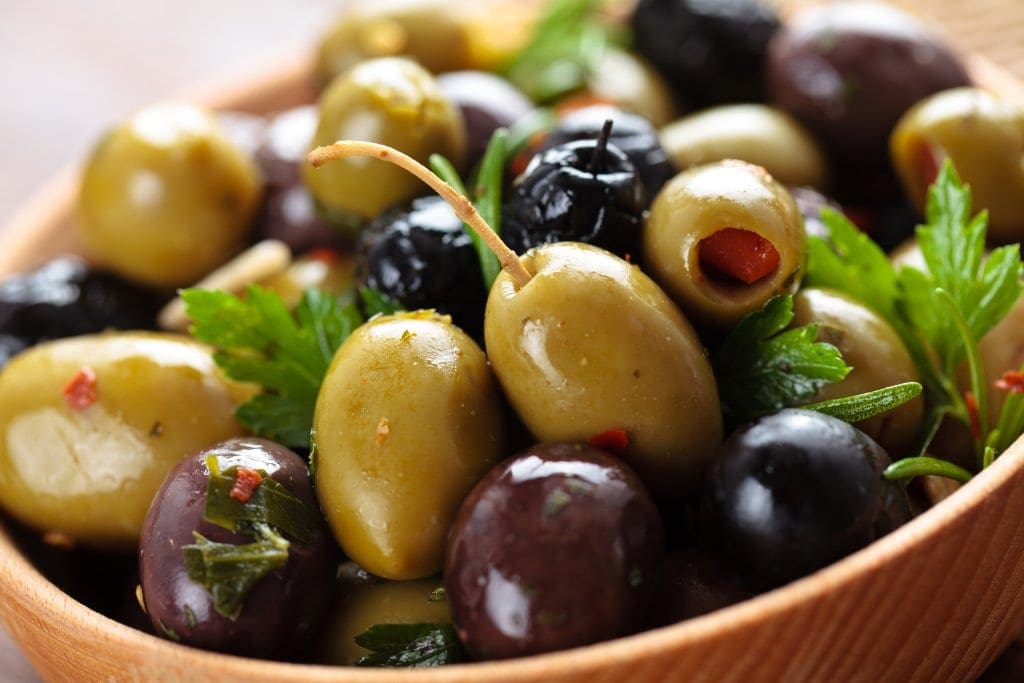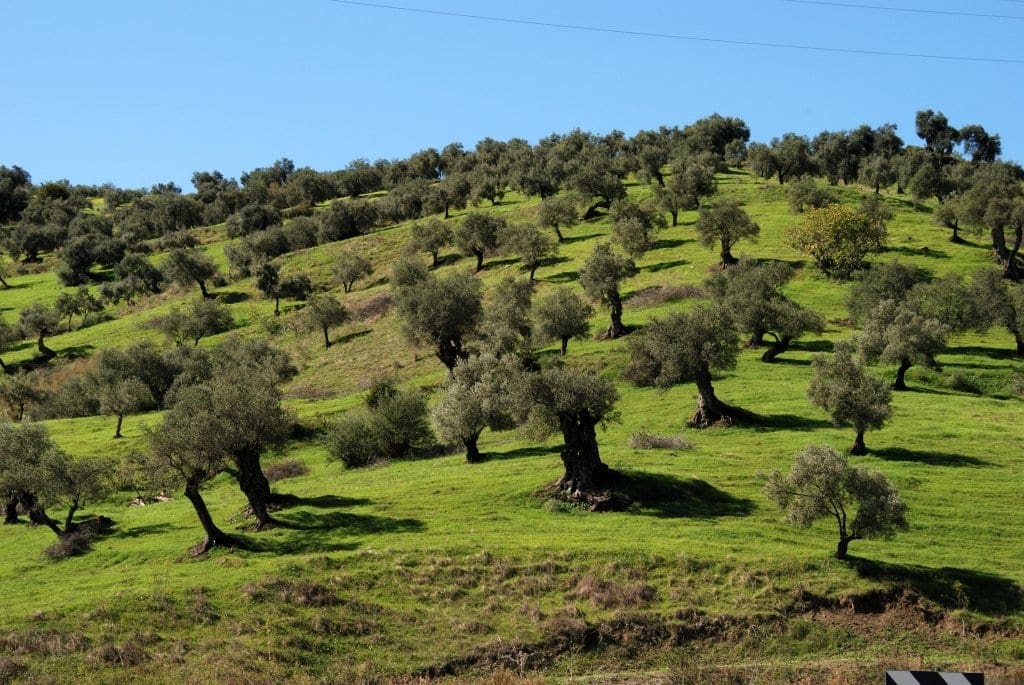
What Spices are Grown in Spain?
October 2, 2020
Explore Spain's spice treasury and savor vibrant Mediterranean flavors. Immerse yourself in the essence of the cuisine for a delightful sensory adventure.
By: Genevieve Mc Carthy / Last updated: January 4, 2024
Estimated reading time: 5 minutes
Dry, rolling hills studded with gnarled olive trees are an iconic image of Spain. No matter where you travel — the white-walled towns of Andalucía, the vast plains of Castilla y la Mancha, the rugged hills of southern Catalunya, or the quiet rural lanes of the island of Mallorca, olive trees are likely to be nearby. First introduced by the Phoenicians and a staple of the Mediterranean diet for centuries, olive oil is prized for its robust flavor and incredible health benefits. Whether it’s used to enhance the flavors of fish or vegetables, to add zest to a salad, or to cook traditional dishes like paella or patatas bravas, olive oil is one of the most beloved components of fine Spanish cuisine. Olive oil lovers can explore the nuances of Spanish olive oil through olive oil tours, including tastings at restaurants and olive producers throughout Spain.

Spain is one of the world’s best-known olive oil producers, and its most abundant, vast quantities of oil are produced and exported each year. Some of the most common olive varieties used are Manzanilla, Arbequina, Picual, and Cornicabra. From golden yellows to bright greens, olive oils run the gamut from mild and fruity to spicy or bitter. The best oils are labeled extra virgin or virgin, reflecting their maximum acidity and ideal pressing. Virgin oils can only be cold-pressed and not be treated artificially (only washing, decanting, and filtration are allowed). Other classes of oil, including refined olive oil or olive-pomace oil, are of lesser quality.
Olive oil, particularly extra virgin olive oil, has many health benefits. Judicious use of the oil can help balance cholesterol levels (lowering the level of bad cholesterol and raising the level of good), aid digestion, help maintain bone density and reduce the risk of kidney stones. It also helps lower blood pressure, delivers essential nutrients (like Vitamin E), and may help the heart by lowering coronary heart disease risk. Olive oil also has powerful anti-aging properties thanks to antioxidants called polyphenols.
Olive oil can trace its history back over 6,000 years, when the Greeks first made it. Olive groves appeared in Spain with the Phoenician and Greek settlers, and production was further encouraged by the Romans, who introduced new cultivation techniques. In later years, the Arabs continued olive oil production, perfecting pressing and storage processes. Today, olive groves have passed mainly from family farms to larger companies, but the work is still an artisanal process requiring much manual labor and dependence on nature.
Olive oil is produced throughout Spain, but each region has its varieties and styles. As with wine, olives are deeply affected by the soil and climate they’re grown in, and a fine extra virgin olive oil will be a fragrant and flavorful reflection of the area’s growing conditions. Some regions are famed for their balanced, full-bodied oils and have acquired DO (Denomination of Origin) status.

Antequera: This region straddling the provinces of Malaga and Cordoba is known for light, fruity oils made with the Hojiblanca variety and lesser quantities of Marteño, Arbequina, Lechin de Sevilla, Zorzaleño, Gordal de Archidona, Picudo, Verdial de Velez-Malaga, and Verdial de Huevar.
Website: www.doantequera.org
Baena: South-eastern Cordoba produces these sweet greenish wines with the varieties Picudo, Carrasqueño de Cordoba, Lechin, Chorruo, Jarduo, Hojiblanca, and Picual.
Website: www.dobaena.com
Bajo Aragón: Empeltre is the main variety of golden olive oils made near Zaragoza. Arbequina and Royal olives are also used.
Website: www.aceitedelbajoaragon.es
Campo de Montiel: In becoming an official DO in Castilla y la Mancha, this region produces oils using mainly the varieties of Cornicabra and Picual.
Gata-Hurdes: Made in Extremadura with the Manzanilla Cacereña olive variety, these smooth wines can be either golden or greenish colored.
Website: www.acenorca.es
La Alcarria: This Castilla y la Mancha region is not yet an official DO but should soon be declared one. Castellana olives are the main variety used in fruity, aromatic oils.
La Rioja: Throughout Rioja, you’ll find potent, vegetable-flavored oils made with varieties like Redondilla, Arbequina, Empeltre, Machona, Negril, Royal, Hojiblanca, Arroniz, Verdial, Picual, Cornicabra, Manzanilla and Blanqueta.
Les Garrigues: This Catalan DO produces greenish, sometimes bitter, oil from the flavorful Arbequina and Verdial varieties.
Website: www.olidoplesgarrigues.com
Mallorca: Cornezuelo and Jabata (aka Picual) are the main varieties in Mallorca’s aromatic and sometimes spicy olive oils.
Montes de Toledo: The Cornicabra oils made in this region in Castilla y la Mancha offer a unique balance of fruity and spicy, sweet and bitter.
Website: www.domontesdetoledo.com
Sierra de Cazorla: Near Jaen, mild olive oils are made with Picual and Royal varieties.
Sierra Magina: Picual and Manzanillo de Jaen are the star varieties of this region in Jaen. Oils tend to be fruity and slightly bitter.
Website: sierramagina.es
Siurana: The well-respected and wonderfully flavorful oils from Arbequina, Royal, and Morrut varieties are among Spain’s best.
Website: www.siurana.info
Poniente de Granada: Many different colors, flavors, and aromas can be spotted from the wide variety of olive oils made in this region in Granada. Common varieties include Picudo, Picual, Marteño, Hojiblanca, Lucio, Nevadillo de Alhama de Granada, and Loaime.
If you would like us to customize an exclusive luxury tour, contact us and let us know your travel plans. We offer luxury food and wine tours for private groups of a minimum two guests. In addition, all of our private, chauffeured tours are available year-round upon request.

